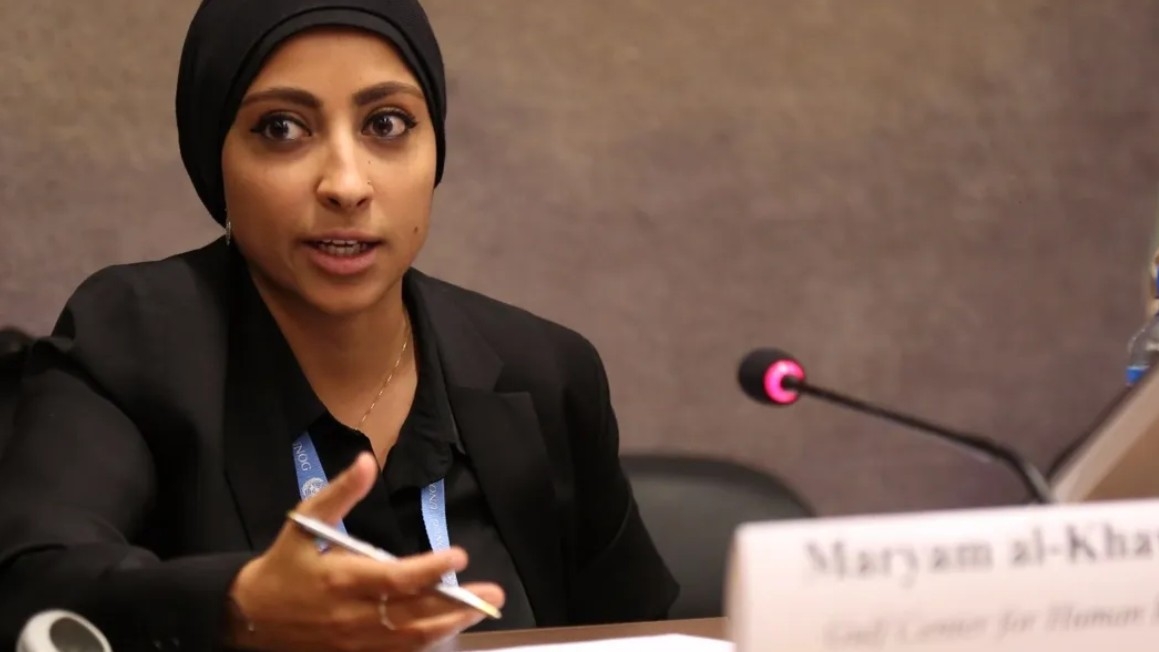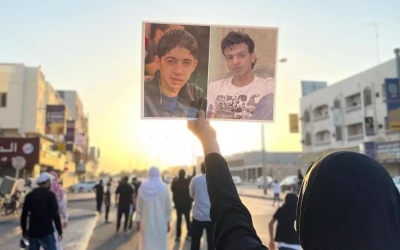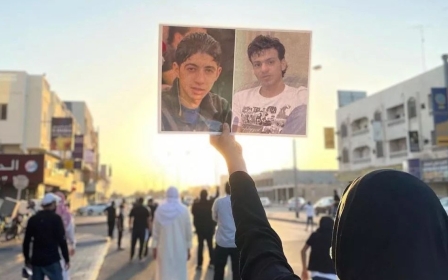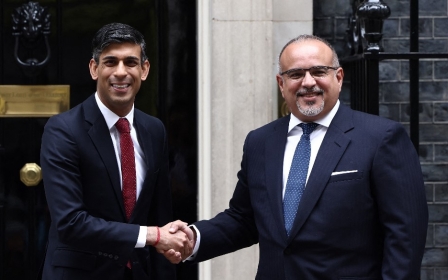Bahrain: Activist to travel home despite risk of imprisonment

Maryam Al-Khawaja, a Bahraini human rights activist living in self-imposed exile, says she will risk arrest and travel to Bahrain next week in order to raise awareness over her father's imprisonment and an ongoing mass hunger strike in his prison.
Abdulhadi Al-Khawaja, a prominent opposition figure, was sentenced to life in prison in 2011 after leading peaceful protests calling for fundamental freedoms in the kingdom.
He is among 800 prisoners whom activists say have been on hunger strike since early August to protest against the conditions in Jau Prison, where they are locked in their cells for up to 23 hours a day.
Two days into the strike, the 62-year-old was admitted to the ICU at a military hospital with cardiac arrhythmia. After treatment, his heartbeat stabilised and he was taken back to prison, where he resumed his strike.
“Every day that passes, I am worried that I will receive a phone call that my father has died in prison,” Khawaja told Middle East Eye this week.
New MEE newsletter: Jerusalem Dispatch
Sign up to get the latest insights and analysis on Israel-Palestine, alongside Turkey Unpacked and other MEE newsletters
“This is my last-resort attempt at saving his life, and I also want to raise attention on the over 800 people on hunger strike in Bahrain right now."
Khawaja’s decision to go back to Bahrain could have serious consequences. She risks a potential life sentence, she said.
In 2014, she was sentenced in absentia to a year in prison on charges of assaulting police officers. She said she was assaulted by the police who then accused her of assault.
In addition to the one-year sentence, Khawaja said she faces four other charges related to insulting the king, each of which carries a potential seven-year sentence.
“As far as I know, there’s also been a charge that’s been filed under the terrorism law against me which is vaguely defined, which means that even the work of a human rights defender can be considered terrorism,” she said.
The activist and campaigner has a group of people who have pledged to travel with her, given the very high risk that she will be arrested as soon as she lands in Bahrain.
In order to raise further awareness of her father’s case, and now her own case, Khawaja has called on people to write to their representatives and bring attention to what is happening, hoping that it will provide her with some protection.
'Terrified about going back'
While her decision has been hailed as brave by other activists and campaigners, Khawaja said it was not an easy choice.
“To tell the truth, I’m terrified about going back,” she said.
'Despite being afraid, I think trying to save my father’s life is more important than fear'
- Maryam Al-Khawaja, activist
“I definitely don't want to be back in prison. I've experienced prison. I've experienced going on hunger strike. I know what that's like.”
However, she hopes to put enough pressure on the authorities so that the hunger strikers' demands are met and that she doesn’t end up behind bars.
According to Khawaja, the only way this can be achieved is if international governments, particularly those in the west, pressure the Bahraini government to release all political prisoners and prisoners of conscience.
“Despite being afraid, I think trying to save my father’s life is more important than fear. And to me, that’s what matters," she said.
Middle East Eye delivers independent and unrivalled coverage and analysis of the Middle East, North Africa and beyond. To learn more about republishing this content and the associated fees, please fill out this form. More about MEE can be found here.





